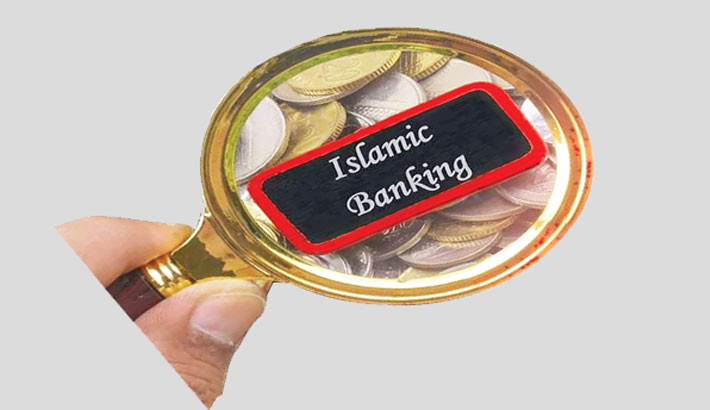Islamic Banking and Interest-free Finance
Zahid Hasan, Student, University of Dhaka
Published: 16 Nov 2025

Islamic banking is a financial framework that operates entirely free of interest and is built on the principles of justice, fairness and transparency as prescribed in the Islamic Shariah. This system rejects the notion of earning money from money itself; instead, it revolves around real assets, trade and production, thereby grounding financial activity in the real economy. Its doctrinal foundations are drawn from the Qur’an, Hadith, and various sources of Islamic jurisprudence. The aim of Islamic banking is not only to avoid interest but also to establish a just economic order. Transactions are therefore conducted through actual transfer of ownership of goods or services, ensuring that economic activity remains tied to real value. Through this structure, individuals can avoid interest while encouraging investment and circulation of funds in productive sectors of the economy. Since Islam strictly prohibits riba, or interest—because it guarantees income without risk and is therefore considered morally unjust—Islamic banking promotes the fair sharing of risk through the principle of Profit and Loss Sharing (PLS).
The formal journey of modern Islamic banking began in 1963 with the establishment of the Mit Ghamr Savings Bank in Egypt. Dr Ahmad El Najjar attempted to translate the Islamic vision of social justice and interest-free finance into practice. Later, in the 1970s, when the Organisation of Islamic Cooperation (OIC) decided to expand Islamic banking across its member states, the system grew rapidly. The establishment of the Islamic Development Bank (IDB) in 1975 further strengthened the global institutional framework of Islamic finance. Countries such as Malaysia, Saudi Arabia, Kuwait, Bahrain, Sudan and Pakistan subsequently institutionalised Islamic banking. In Bangladesh, Islamic banking has gained significant popularity, and over the past four decades, it has become one of the country’s major financial sectors.
Islamic banking is fundamentally the opposite of conventional interest-based banking. Conventional banks lend money directly and charge fixed interest in return, making “money-lending” their core function. Under Islamic Shariah, this is strictly prohibited. Islamic banks do not provide loans in the traditional sense; instead, they meet customer needs through Shariah-compliant investment methods. The system rests on two foundational principles: the sharing of profit and loss, and the elimination of riba. These principles reflect the core philosophy of Islamic economics, which seeks to prevent economic exploitation and ensure fair distribution of wealth. Because both parties share the risks of profit or loss, Islamic banking cannot operate as a business of trading money for more money, and thus interest-free transactions become inherently ensured. Unlike the conventional banks, which borrow money at interest and lend it again at a higher interest rate, Islamic banks operate through asset-based transactions grounded in ownership and real value. This is where the essential difference between the two systems lies: the prohibition of riba. Establishing a just, interest-free economic order is one of the central objectives of Islamic banking, which seeks to promote social welfare and equitable distribution of resources.
Islamic economics prohibits not only riba but also gharar (excessive uncertainty) and maysir (gambling). Any transaction in which the nature, quantity, or price of a commodity is uncertain, or in which income depends on chance, is considered unethical and incompatible with Islamic financial ethics. This emphasis on clarity, realism, and moral conduct gives Islamic banking the character of an ethical economic model rather than merely a financial system.
Among the most widely used investment modes in Islamic banking is murabaha, in which the bank purchases the required goods and sells them to the customer at an agreed-upon profit margin. However, although murabaha is popular, the most ideal modes of financing in Islamic economics are mudaraba and musharaka—profit-and-loss sharing partnerships that hold the highest moral value. In these arrangements both the bank and the client share risk: both share profit if the venture succeeds, and both bear loss if it fails.
The ultimate goal of Islamic banking is not simply to avoid interest; it seeks to establish fairness, risk-sharing, productive investment, and social justice. Islamic banking is thus not merely a financial industry but an ethical framework. To excel in this sector, institutions must look beyond profit and cultivate integrity, transparency, fairness and real-economy engagement. Customers similarly share responsibility, as Shariah-compliant transactions depend on the honesty and cooperation of both parties.
Islamic banking has grown not only because of religious sentiment but also because it offers equitable risk distribution, partnership, connection with the real economy, and a focus on social welfare. It has created an opportunity to address the moral shortcomings of conventional banking. However, to realise this potential, Islamic banking must move beyond superficial compliance and evolve into a system that is production-oriented, transparent, and technologically modern. Its success will depend on how courageously the industry can translate its guiding philosophy into real-world practice. Managerial competence, human resource development, strict Shariah adherence and technological transformation are essential. Only then can Islamic banking become a sustainable and ethical financial system, one that strives not merely for profit but for human development.

